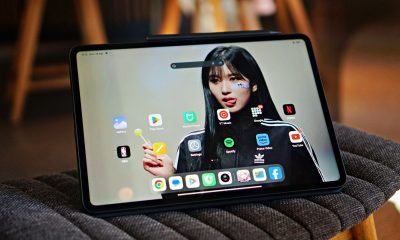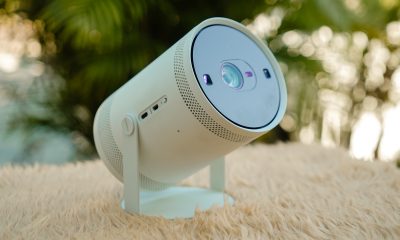Enterprise
China blacklists the Houston Rockets because of a tweet
Chinese companies have canceled support

As we know now, a tweet can cause utter chaos in the real world. It’s far easier to take a short tweet out of context than a long-form piece. You should always be careful with what you tweet. That said, the world’s biggest basketball organization just caused a Twitter boo-boo.
More specifically, Houston Rockets general manager Daryl Morey recently tweeted a pro-Hong Kong tweet on his personal account. The tweet contained an image and the statement “Fight for Freedom. Stand with Hong Kong.” Hong Kong’s current pro-democracy protests are a focal point for international personalities. Morey’s support adds to the millions already supporting the country’s predicament.
Listen….@dmorey does NOT speak for the @HoustonRockets. Our presence in Tokyo is all about the promotion of the @NBA internationally and we are NOT a political organization. @espn https://t.co/yNyQFtwTTi
— Tilman Fertitta (@TilmanJFertitta) October 5, 2019
Unfortunately, Morey’s tweet immediately sparked a wave of hatred especially from the Chinese Twitter population. Many accounts called for his firing. Rockets owner Tilman Fertitta posted a reply, saying Morey’s opinions are his own and not the Rocket’s as an organization. Instead of calming the seas, Fertitta’s tweet added fuel to the fire. Twitter was divided between people calling for Morey’s firing and people criticizing Fertitta for silencing Morey’s opinion.
Morey has since deleted the tweet and issued an apology tweet, further hammering the disclaimer that his opinions are not representative of the entire NBA. The damage, however, has already been done. China is angry.
Yao Ming, one of the team’s most popular players in history, has revoked support for the team. Yao is currently the president of the Chinese Basketball Association, which previously worked with the Rockets.
Additionally, Tencent Sports, China’s biggest streaming provider for the NBA in the country, has suspended its new five-year deal specifically for the Houston Rockets. As such, the service will not stream games featuring the Houston Rockets. A Chinese sports apparel brand, Li-Ning, has also canceled partnerships with the team and its players.
Currently, there is no plan to punish Morey. During Morey’s tenure as general manager, the Houston Rockets has enjoyed considerable postseason success in the NBA, headlined by superstar guard James Harden.

For the longest time, Google kept Pixel and Android behind two different teams. While the Pixel team dealt with devices made by and for the brand, the Android team ships a product meant for brands outside of the company’s purview. However, the days of separation are at an end. Google is officially merging its Pixel and Android teams together.
In a shocking announcement, the company has confirmed that the teams handling hardware and software will fall under a single team headed by Rick Osterloh. Prior to the merge, Osterloh was the senior vice president of devices and service, which was Google’s hardware branch. He will now oversee both hardware and software.
Because of the new leadership change, Hiroshi Lockheimer, former head of Android, will now move on to other projects within Alphabet. Of note, the change is not harsh for Lockheimer. He and Osterloh had been contemplating on the merge for a while.
Now, why the change? As is the case with everything today, it’s all because of AI. Speaking to The Verge, Osterloh explains that the merge will help with “full-stack innovation.” With how technology is these days, it’s now impossible to develop AI without having a close eye on hardware, such as in Google’s AI developments for the Pixel camera. Merging the teams will help streamline development, especially when hardware is involved.
Despite the change, outside brands, like Qualcomm’s Cristiano Amon, remains confident of Android’s capabilities outside of Google. Just expect more AI coming out in the near future.

The ongoing trade war between the United States and China is putting a lot of companies out of business in one country. While all eyes are currently on America’s crusade against TikTok, China has launched a salvo of its own. The country has started banning AMD and Intel, starting with government devices.
Recently, as reported by the Financial Times, China has introduced a new rule that bans American chipsets and servers from government agencies. The new ban includes AMD, Intel, and Microsoft Windows.
In lieu of the now-banned brands, Chinese government agencies must use approved brands from a list of 18 Chinese manufacturers. Unsurprisingly, the list includes Huawei, another brand involved in the ongoing trade war. (Huawei is still banned on American soil.)
As with bans from America, China’s latest rules stem from a desire to implement national security. Both countries allege that using brands from the opposing side will open a potential avenue for transferring classified information.
Currently, the ban against the American chipsets are only affecting government devices. However, if it follows the same trajectory as Huawei and TikTok in the United States, a government-only ban might soon lead to an all-out ban on consumer devices. As TikTok is currently hanging in the balance, it’s unlikely that the trade wars will cool down anytime soon.

So far, Apple’s greatest enemy has been the European Union. Months and months of claiming that the company engages in anti-competitive practices, the region has successfully caused Apple to drastically change a lot of things about the iPhone including the Lightning cable. Now, a new challenger wants Apple to answer for its supposed grip on the industry: the United States government.
Today, the Department of Justice is officially suing Apple for supposedly monopolizing the smartphone industry and stifling competition. The lawsuit alleges that Apple’s lineup of products prevent users from trying out other brands. For example, Apple limits how well a third-party smartwatch works on an iPhone, pushing users to go for an Apple Watch instead.
The lawsuit also includes an important pain point in Apple’s fight in Europe. It says that the company makes it difficult for iPhone users to communicate with Android users (and vice versa). Late last year, the company already committed to supporting RCS as a messaging standard, finally easing communication between the two systems. Their adoption has yet to arrive, though.
Though not as stringent as Europe, the American government is no slouch when it comes to questioning its own companies for pursuing anti-competitive practices. In the past, it went through Google and Spotify to protect the interests of its citizens. The lawsuit against Apple is no different, gathering signatures from sixteen states.
For Apple’s part, the company aims to get the case dismissed, alleging the lawsuit’s unfair scope of just the American people when it targets the entire world.
SEE ALSO: Apple opens first Developer Center in Southeast Asia
-

 Reviews1 week ago
Reviews1 week agorealme 12 5G review: It was enchanting to meet you
-
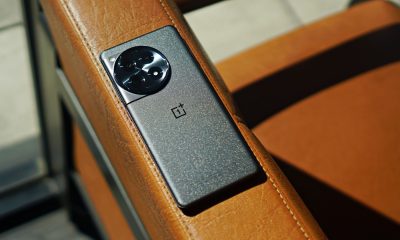
 Reviews4 days ago
Reviews4 days agoOnePlus 12R review: Making sense of OnePlus’ latest flagship
-
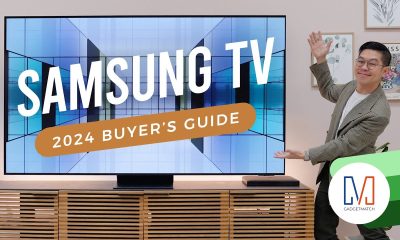
 Buyer's Guide2 weeks ago
Buyer's Guide2 weeks ago2024 Samsung TV: Buyer’s Guide
-
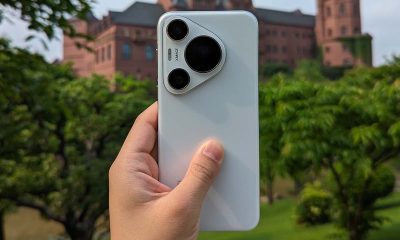
 Smartphones3 days ago
Smartphones3 days agoHuawei Pura 70 Pro Unboxing and First Impressions
-

 Smartphones1 week ago
Smartphones1 week agoInfinix NOTE 40 Pro+ 5G: Philippine pricing, availability
-

 Features1 week ago
Features1 week agoLOQ and LOAD: The Lenovo LOQ 2024 is for gaming and more
-
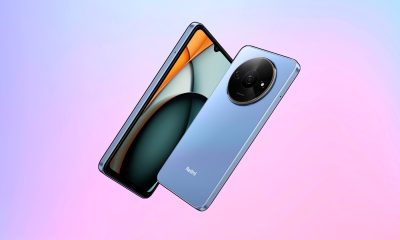
 News1 week ago
News1 week agoXiaomi Redmi A3 Philippine pricing, availability
-

 Gaming1 week ago
Gaming1 week agoStellar Blade review: Strenuous but Stylish








